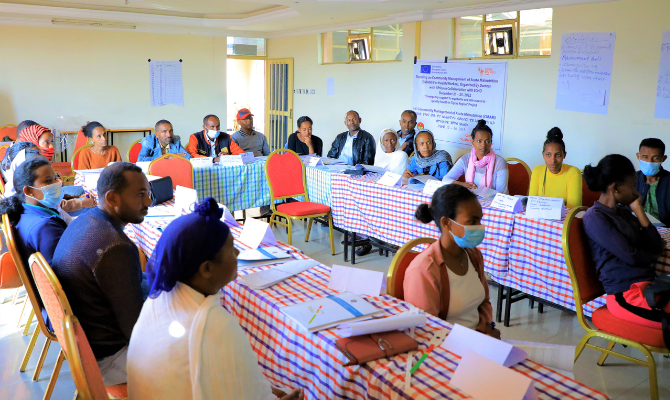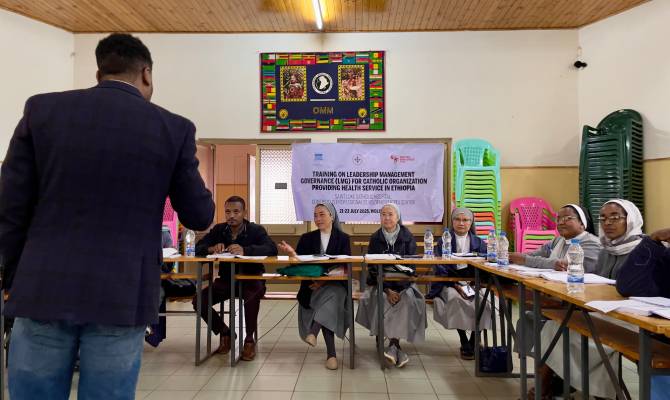What is happening in Tigray? In this region of Ethiopia, the population is severely affected and living in precarious conditions due to the recent war, which has also undermined the health system. Because of the lack of fuel and availability of cash, vulnerable groups, in particular mothers and children, have been suffering from insufficient provision of health services. In addition, for the past two years, health care workers have not been receiving salary, and the health facilities have not been supplied with medical equipment and drugs.
Since the Federal Government of Ethiopia and the Tigray People’s Liberation Front signed the peace agreement, committing to create stability and retrieve the services in the region, Doctors with Africa CUAMM, starting from June 2022, has been implementing the project “Emergency support to equitable and safe access to quality health in Tigray Region”, supported by EU Humanitarian Aid (ECHO) funding, directly targeting three health facilities in the region: St. Louise Eye Clinic in Mekelle, St. Mary Health Centre in Edaga Hamus, and Kidane Mihret Hospital in Adwa.
The activities offered to strengthen the health team
CUAMM has organised several trainings in Adwa, in Edaga Hamus in Adigrat and in Mekelle. Among these, the training on basic emergency maternal obstetrics and neonatal care aimed to build capacity for health care workers, particularly midwives, on antenatal care, delivery and postnatal care services. Moreover, the training on community management of acute malnutrition was carried out to develop health care workers’ capacity to treat and support malnourished patients, considering that 50.3% of pregnant and lactating women and 22.7% children are suffering from global acute malnutrition (OCHA). These training sessions involved 50 participants. Furthermore, training on infection prevention and control and on health management inform system were organised, also in Mekelle, involving 70 participants.
These training helped the collaboration and coordination among different health facilities in the area, to improve the access to the health services. «Considering the last two years of conflict in the country, – affirms Yonas Tadesse, CUAMM Humanitarian coordinator – the provision of training to the health staff of the targeted health facilities and of the nearby health centres in Tigray is fundamental, leading to a better access to quality health service. By providing capacity-building to the staff, they can feel more motivated, willing to grow their skills and capacities to support mothers, children and vulnerable groups, as well as earn an income to sustain their families».
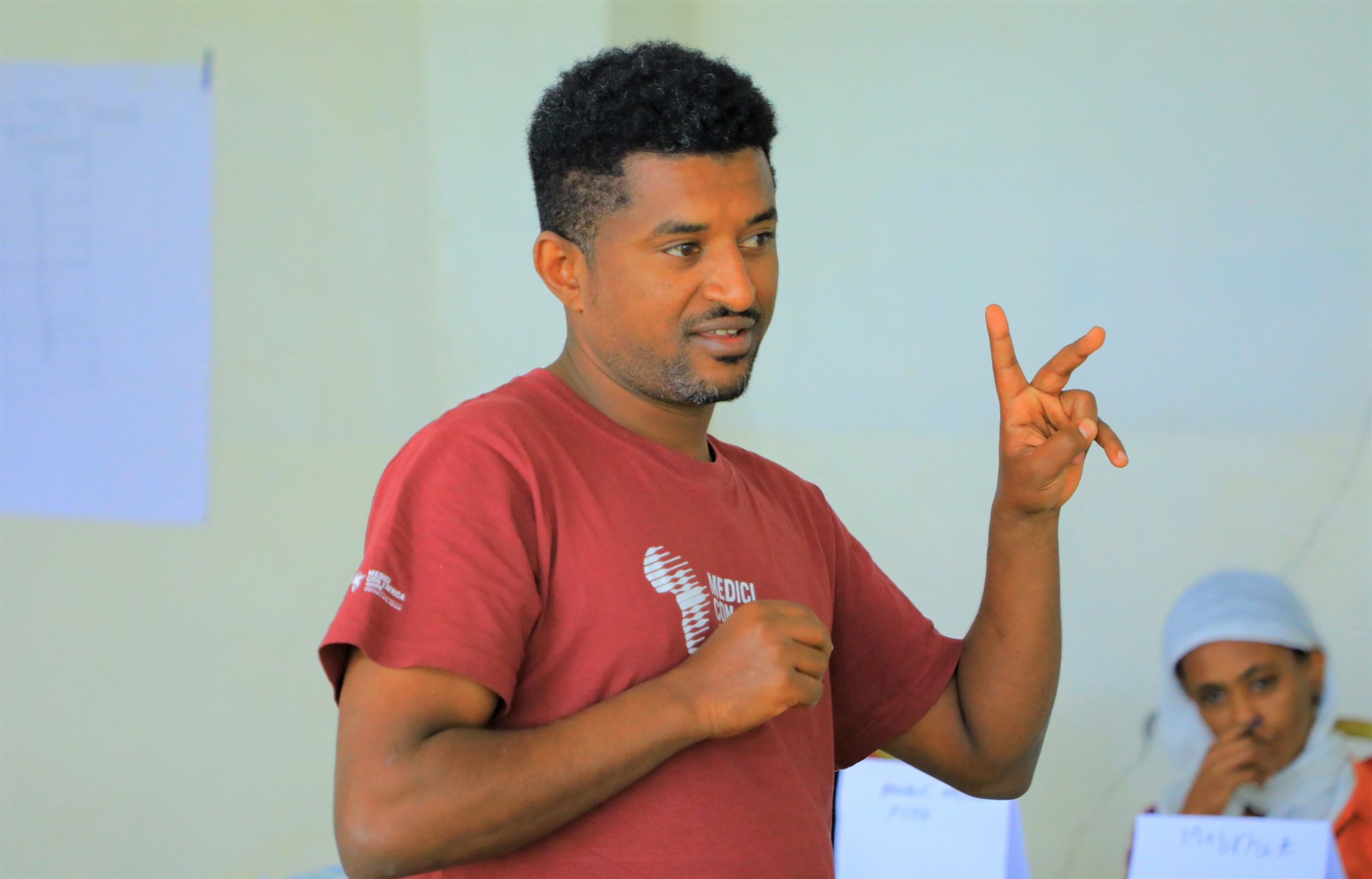
CUAMM also organised the “Referral pathway coordination workshop” targeting representatives of the health facilities of the area, aiming at coordinating the response to the challenges of the context.
«The referral – says one of the participants – is necessary and life-saving: due to the lack of cash and fuel, in the last two years people were unable not only to provide food, but also to find transportation to reach the health facilities. In addition, health facilities were not supplied with drugs, and the unpaid staff was often unable to reach the workplace and provide services».
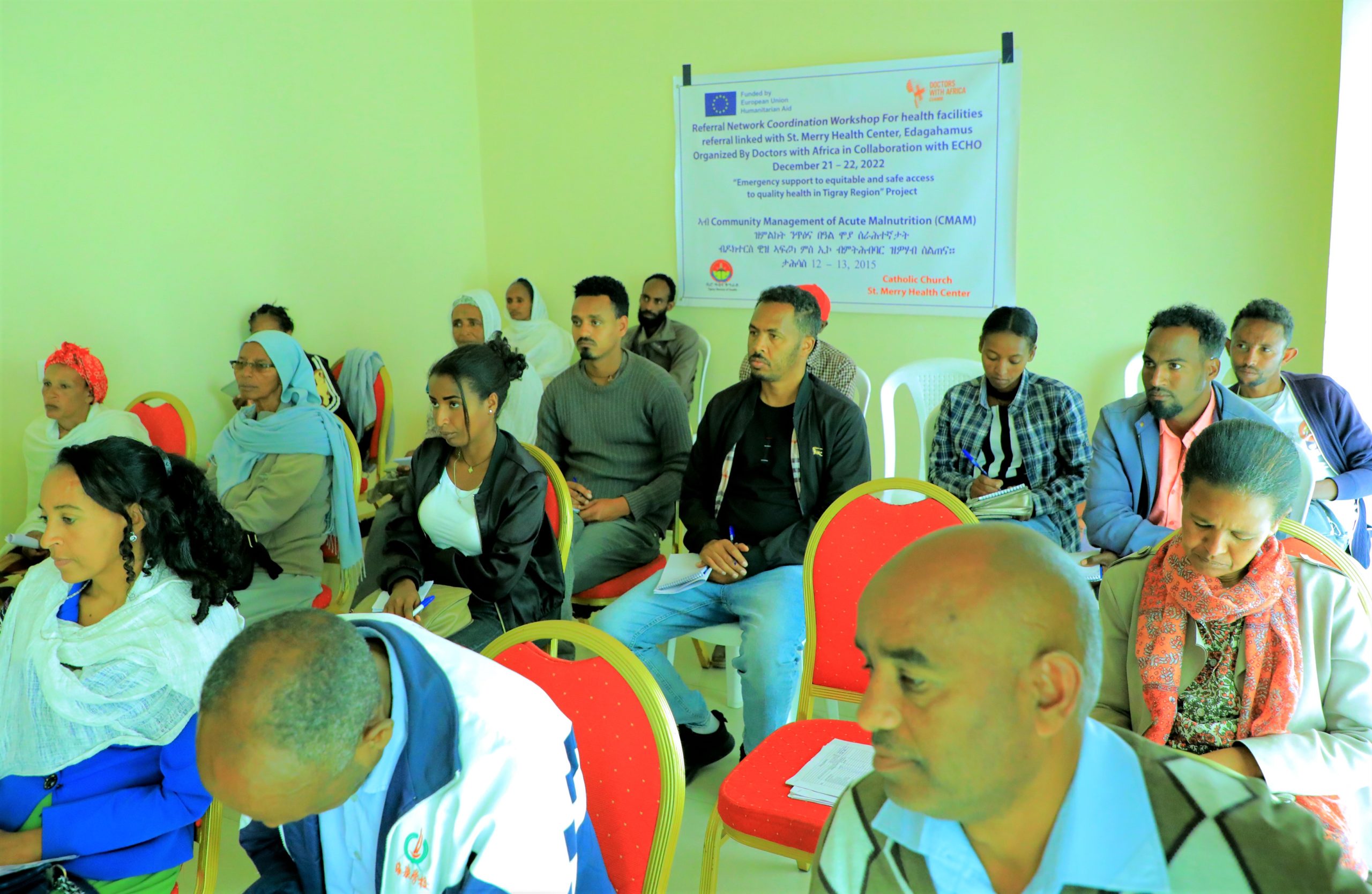
According to OCHA, 83% of health facilities do not provide maternal services including prenatal care and deliveries, causing a dramatic surge of maternal deaths, 276 in 2021. At the end of 2021, after the first 13 months of conflict, the Tigray Health bureau reported the decline of the ANC services provision from 94% to 16% as well as of PNC from 73% to 19%. Deliveries assisted by trained health staff went from 81% to 21%, while pregnant and lactating women in acute malnutrition increased from 32% to 78%.
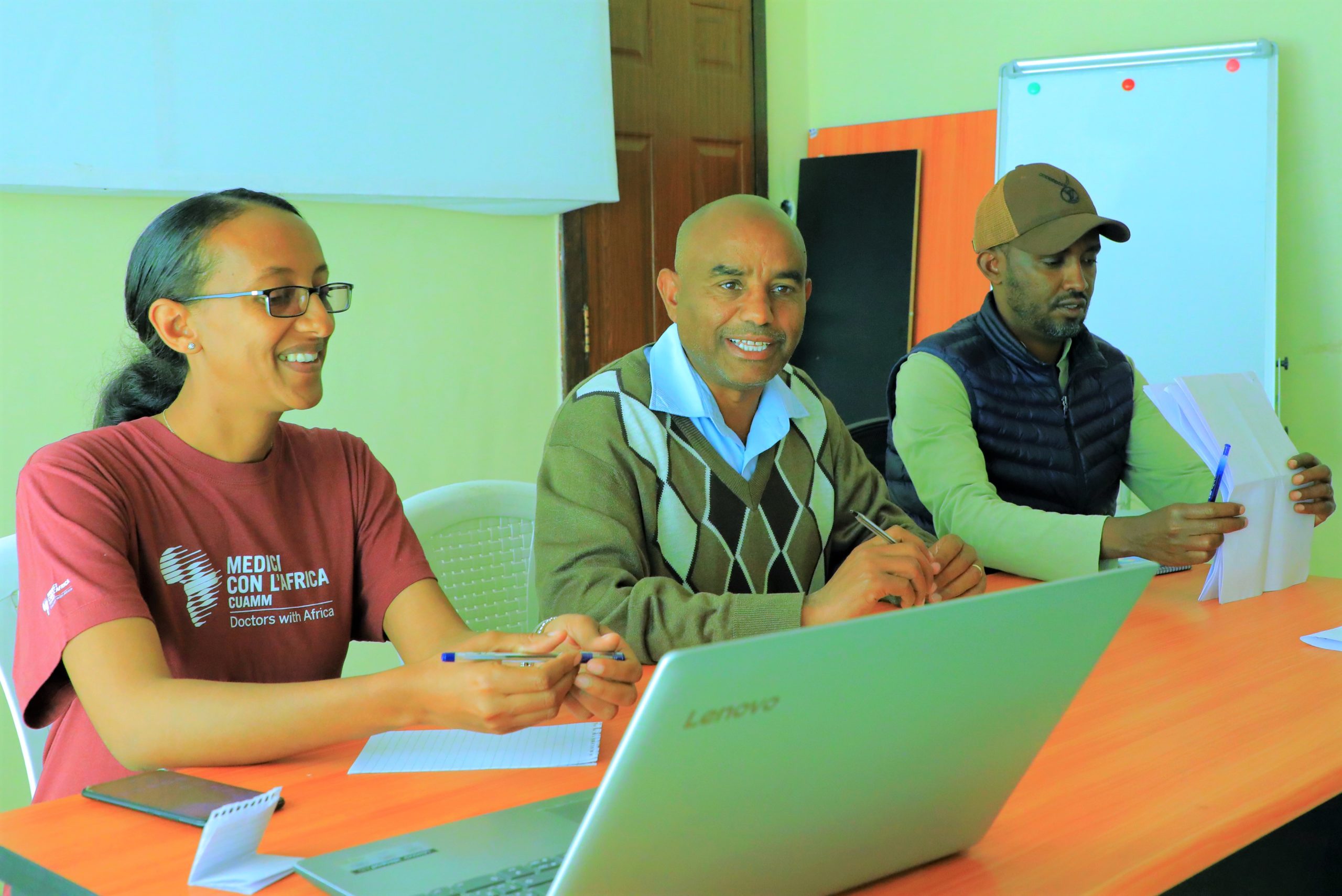
The first results thanks to the CUAMM project
By the end of January, thanks to the Referral Pathway system, CUAMM was able to support 86 patients, by providing fuel for ambulance and autonomous transportation, as well as access to medicines. Of these 86 patients, 9 were referred from the IDPs sites to St. Louise Eye Clinic in Mekelle, 40 from St. Mary Health Centre in Edaga Hamus to Adigrat Hospital and another nearby facility, and 37 from Kidane Mihret Hospital in Adwa to Adigrat Hospital.
«In St. Mary Health Centre in Edaga Hamus, – says Yonas – no MCH service was provided since the start of the conflict. Thanks to CUAMM, a pharmacist and a midwife were hired, allowing the restart of the services in September. So far 70 mothers gave birth safely at St Mary HC. Furthermore, in Kidane Mihret Hospital in Adwa, 3 women in severe conditions were referred, and thanks to the work of the senior gynaecologist and of the paediatrician 3 complicated surgeries were performed to save the women and their babies after caesarian sections».
Continuous presence, support for the fragile health system and investment in capacity building: these are the instruments CUAMM has been putting in place to enhance safe access to quality health services and reduce maternal and child deaths in Tigray.
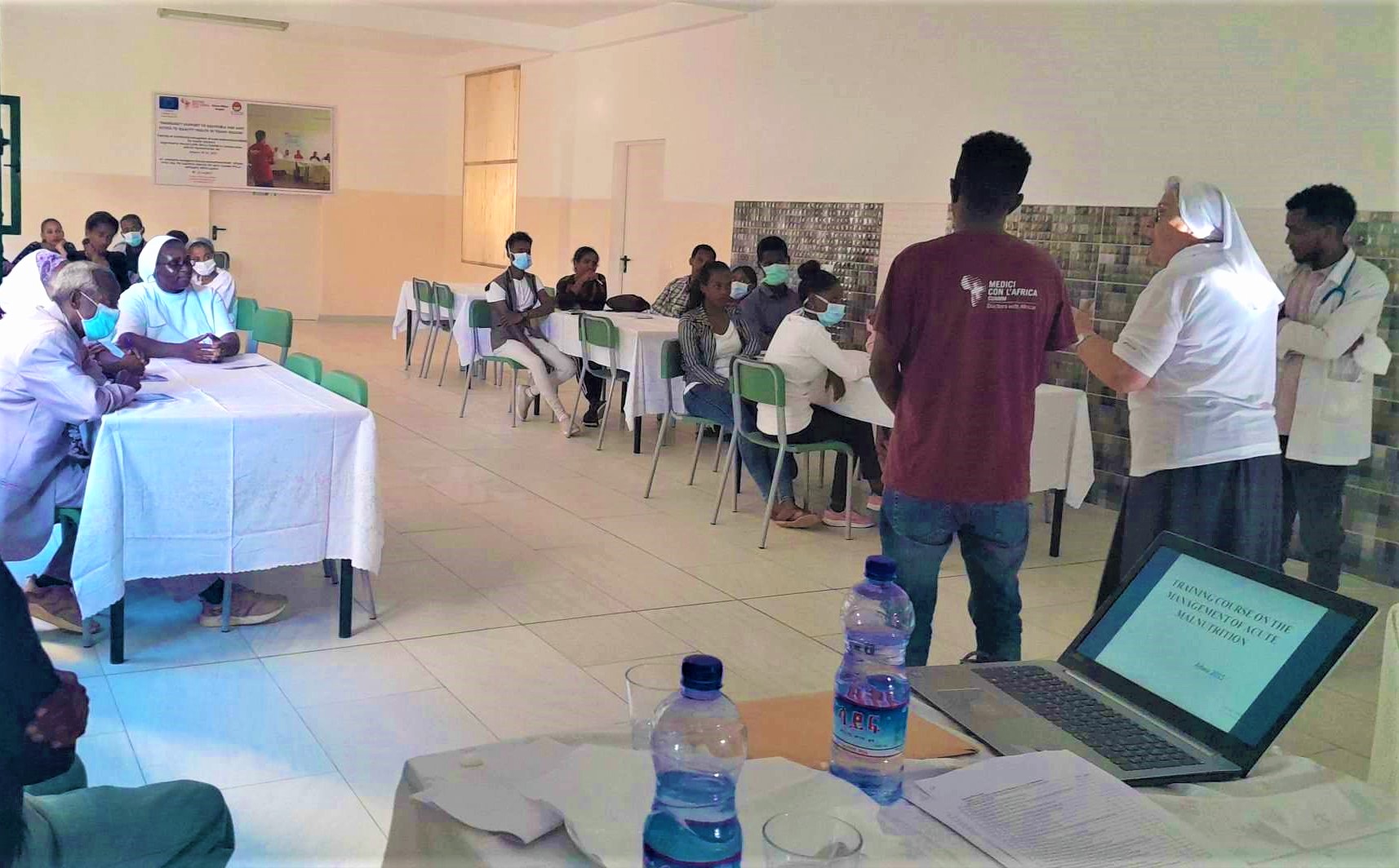

This document covers humanitarian aid activities implemented with the financial assistance of the European Union. The views expressed herein should not be taken, in any way, to reflect the official opinion of the European Union, and the European Commission is not responsible for any use that may be made of the information it contains.

